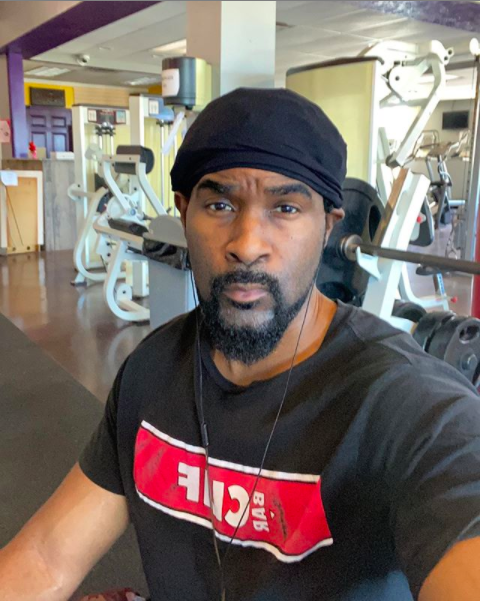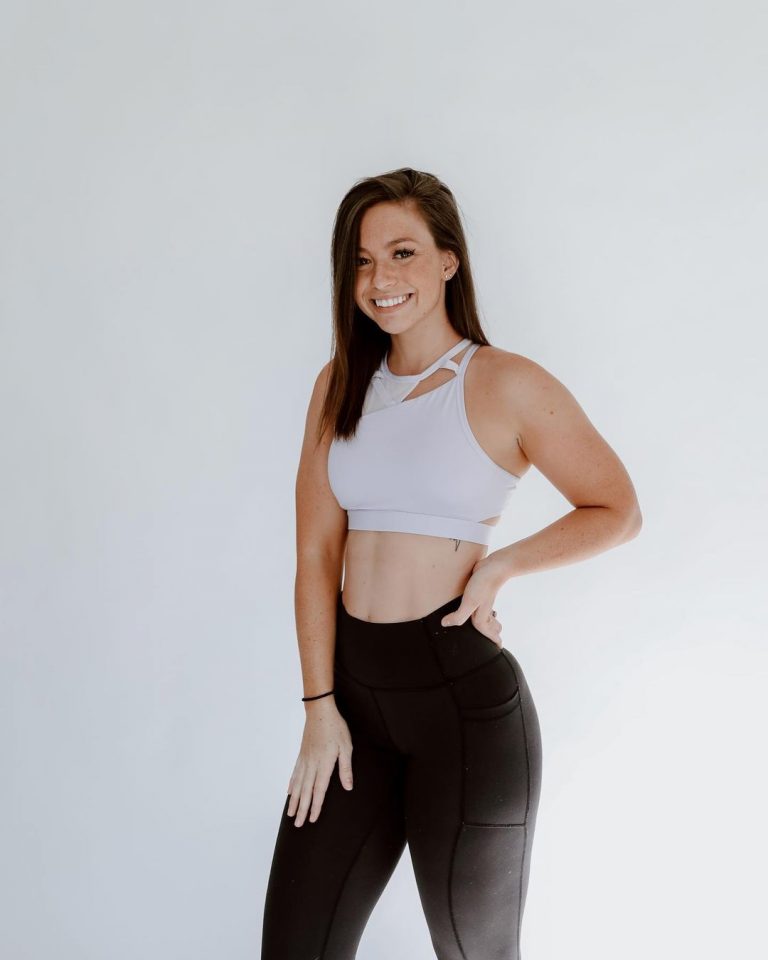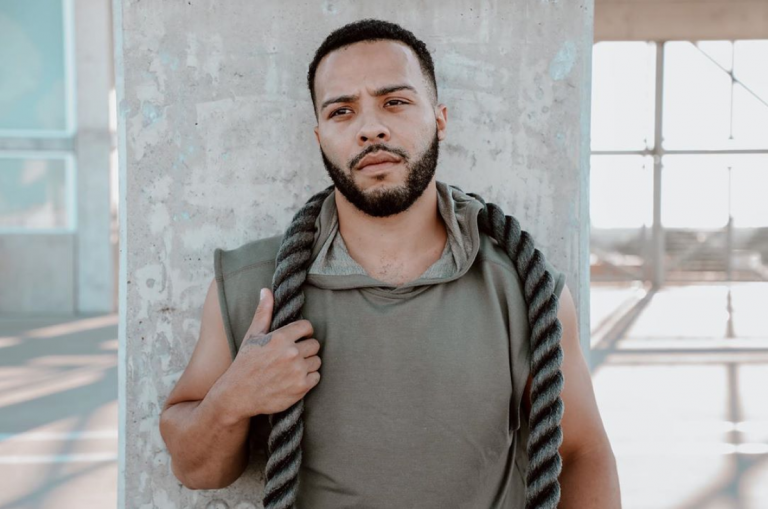How to Become a Fitness Trainer eBook
Sivan Fagan lends her knowledge in our latest eBook on How to Become a Fitness Trainer.
Download for free here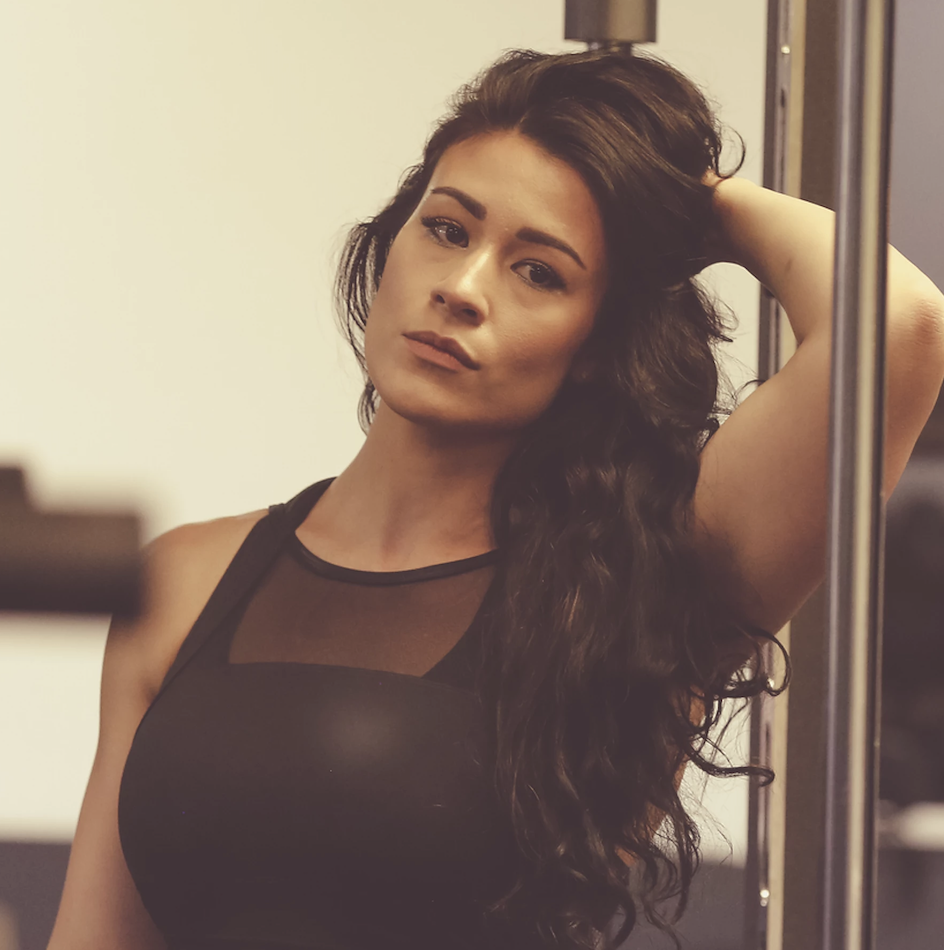 1.1k
1.1k
If you focus on strength training and just bettering yourself, it does have a ripple effect into many, many aspects of your life. It goes way beyond the aesthetic part and way beyond the physical aspects.

Sivan Fagan
PocketSuite Fitness Pro
Fitness Pro Sivan Fagan is a Fitness Trainer in Maryland. Her extensive knowledge as a fitness trainer, with a bit of media maven and life coach mixed in makes her a great asset to our PocketSuite Pro community. Sivan talks to Managing Editor and CEO, Chinwe Onyeagoro about growing her brand and the importance of providing consistent value.
Tell us about yourself.
I’m a personal trainer. I operate mainly in Baltimore, Maryland. I also write articles for bodybuilding.com, T Nation. I work for Self Magazine as well. So I’m kind of all over the place with online coaching clients, in person, also worldwide, as well as nutrition coaching.
How have you managed to stay so busy with lots of clients through this tough period?
So literally, within a few days, I sent a mass email to all of my clients. I’m like, “Hey, this is the situation. This is what we’re going to do.” We literally transitioned and just switched everything into an online format. So whether it’s Skype, Zoom, WhatsApp, whatever it is, each client had their own dedicated time and day for training and we kind of continued business as usual.
I think the most important thing that I did essentially was give them a lot more support and a lot more flexibility with time, so that was huge. Just the fact that even a 60 minute training session would be literally 30 minutes, spending time asking them how they’re doing, how their family is doing, and all that, that’s huge. Because people want to feel supported, especially in the fitness industry. It’s a lot more about the connection between the client and the trainer… That’s basically the main thing about personal training, right? It’s personal. It goes way beyond what kind of exercise program I can write for you.
What do you think they want from you in response?
They want to vent. That’s all, literally. They just want to tell me how everything is going. How they’re feeling. It was very important for me that when I do meet with a client, that it’s as personal as it can be even though it’s not in person. Just telling me how they’re doing physically, emotionally, mentally. Everyone has been hit hard by it, so it’s important to provide that support and accountability. I’ve had parents that had kids running around all over the place and they have to do homework, housework, and work, and all of it. So they’re like, “Hey, if I didn’t have this time scheduled with you, I would just quit doing it.” So the fact that I can keep them accountable, that’s huge.
What came first, your media work or your personal training?
Well, I started in a commercial gym and then I started my own business probably since the time that I heard about you guys. So probably it’s been over three years. In the fitness industry, I mean, it’s an open field, right? Anyone can become a trainer and that’s what I always say. So it’s really important to do your research before you spend your hard earned money on trainers. If you want people to want to work with you, you have to provide value. It has to be consistent value. It has to be not once a month, not once a week, it has to be for years.
So for years, any social media platform that I make posts on: Instagram, Facebook, blog posts, any time that I can use my platform to bring value to people, that’s what I’ve been doing for years. Then it’s from then it went on, the Editor of bodybuilding.com asks, “Hey, do you want to work with us?” And then T Nation and then Self Magazine was about three months ago. You have to do the work before.
How do you keep your content fresh?
Personally, I usually create content right after conversations with clients. So right after a client tells me something, I go, “Oh, that’s an amazing point. I’ll write about it.” Or a client tells me anything about misconceptions. I’ll write about it and then I’ll make a post about it or I’ll make a video about it.
Do you have to be social media savvy to be successful?
I think you need to make sure that whatever you see in your feed is actually positive and it’s not negative. I’ll start with that. You have to make sure that what you see because otherwise you won’t want to post anything if you see all this negative and people talking bad about each other, especially with everything that’s been going on in the world. But I would, again, even introverts, even people that really like to keep to themselves, it is part of marketing, we have to sell ourselves. There’s no way around it. So if you want to be of service to people, you have to make people want to work with you. Or help them understand why working with you would benefit them. There’s no way around it, unless you have a whole marketing team behind you.
How do you achieve your income goals?
With my business, I did systemize. If I have anyone who wants to work with me, they have to commit for three months. I know that you want to get to your goals. I want you to get to your goals. I know that in one week, one month, you’re not going to see any significant differences. You’re not going to learn a lot, because it’s really in three months that you can see some changes. I’m not promising that anyone will go from point A to the end goal.
Realistic expectations are huge. But the good thing is that, from what I’ve seen, people really love it. People are like, “Oh, wow, I love that you offer that accountability.” More often than not, people are like, “Yeah, I want to renew it.” So for me, it gives a consistency in income and for them it creates the space for them to get better and better and get to their goals. My primary goal is to educate. I’m big on education. So my goal is always to educate my clients to the point where they say, “Hey, I’ve worked with you for a while. I know what I need to do. I can do it on my own.”
What resources would you recommend to aspiring and new fitness trainers?
A 100%, I would say first the Personal Trainer Development Center (ptdc.com). They have so much information. Really, it’s like a gold mine over there of everything. Everything from the time that you want to become a trainer, to marketing, to types of clientele, and they’re amazing over there.
What’s the best way to become an independent fitness professional?
I always joke with my friends and with my colleagues. Everyone started with cleaning the machines. Everyone. We all did the dirty work. Everyone has to. I would even say that is just what makes you a great trainer. That is what makes me a good trainer. If you go and get a certification or even when you went to school, you got a degree in exercise science, kinesiology, where does your experience come from? Who are your mentors? A certification or even a degree in exercise doesn’t teach you how to be a great trainer. It does not. The way that I was taught is by seeking out mentors, doing courses, reading books, attending workshops, really just putting yourself out there. Seek out information, certifications, experience, whatever to make yourself the best.
What was the biggest challenge in your career?
The biggest challenge in my career? Do you hear my accent? I’m not originally from the United States. I was born and raised in Israel. I would say for sure, being able to actually coach in English. I mean, essentially, I studied for my certification in six months and that’s how I learned English.
I’ll tell you another one. I think what’s hard for a lot of trainers out there is, because of social media, you deal with a lot of fitness celebrities. I guess you can call them that? Those are people that look amazing, work out, and don’t really know what they’re talking about, to say it lightly. I think that it’s hard because I always say fitness celebrities are not fitness professionals. There’s a huge difference. Fitness celebrities are people that like to work out, enjoy working out, and putting out videos, and content.
A lot of times, I’ve had clients come to me and say, “Hey, is this something that I should be doing? Or why aren’t we doing this? Or why is she doing this?” in terms of their exercise form. I think a lot of times, again, those kinds of fitness celebrities get undeserved authority in the fitness field. I think it’s hard for fitness professionals to actually separate themselves, especially for women. I’ve had talks with other colleagues and they’re like, “Hey, I feel like if I don’t show my skin, then people are not going to think that I’m a trainer. Or I have to look the part to be a trainer,” which I think is completely unnatural.
You should be healthy, but you shouldn’t have to look like a bodybuilder or like a fitness model. It doesn’t mean anything about your skills and your competency as a coach. Absolutely nothing. There was an article years ago that asked the question, “Do trainers need to have six packs?” No, they don’t. My goal is to help you look better, feel better, and move better. How I look has no impact. Now, it doesn’t mean that I should lead an unhealthy lifestyle and look like I lead an unhealthy lifestyle. Because then, no one is going to hire me. I need to walk the walk to a certain degree.
What do you see in the future?
I think that personal training will never die. That’s what I think, number one. Because I know a lot of people who say, “Oh, that’s it. No more training in person.” That’s not going to happen. People seek that interpersonal connection. I have clients that have all the latest gadgets, including “The Mirror”. Have you heard of The Mirror? She bought it and then she hired me literally a month after. I’m like, “I have a question. Why did you hire me if you have it?” And honestly, everyone has access to everything. If you want to work out, you’ll find a workout online. That’s not so hard. But she said, “I want someone to be next to me to tell me if I’m doing the proper form and to be able to adjust and monitor my progress.” Again, I want someone next to me. So what does it tell you? People want that connection. People want that accountability. It’s not enough to have a mirror or whatever it is that’s telling you what to do. So I think that the fitness industry has been hurt and has been hit hard, 100%. I’ll tell you what, though, I think it’s the ones who really focus on supporting their people and building communities that are going to thrive now. That’s what I think.
From who or what did you draw inspiration to have accomplished so much?
I started my own journey, my own strength training journey because at age 17 and 18, I was anorexic. So that was essentially my start for kind of discovering, strengthening, and building my body and not destroying it. Definitely, my grandfather was the one. He used to be a bodybuilder. He lived the healthy lifestyle for years and years. Actually, he recently passed away about two months ago and he passed away at 92 years old. He was literally the poster child for what a healthy lifestyle looks like. He did everything right and he exercised and ate everything in moderation and all that.
I think it was really him that kind of pushed me to continue doing what I’m doing. Then I realized that I’m very, very passionate about it. I want others…I want other women…I want other men to feel what I feel and to see that building your body is actually building yourself – your character and your confidence. It really does. If you focus on strength training and just bettering yourself, it does have a ripple effect into many, many aspects of your life. It goes way beyond the aesthetic part and way beyond the physical aspects.
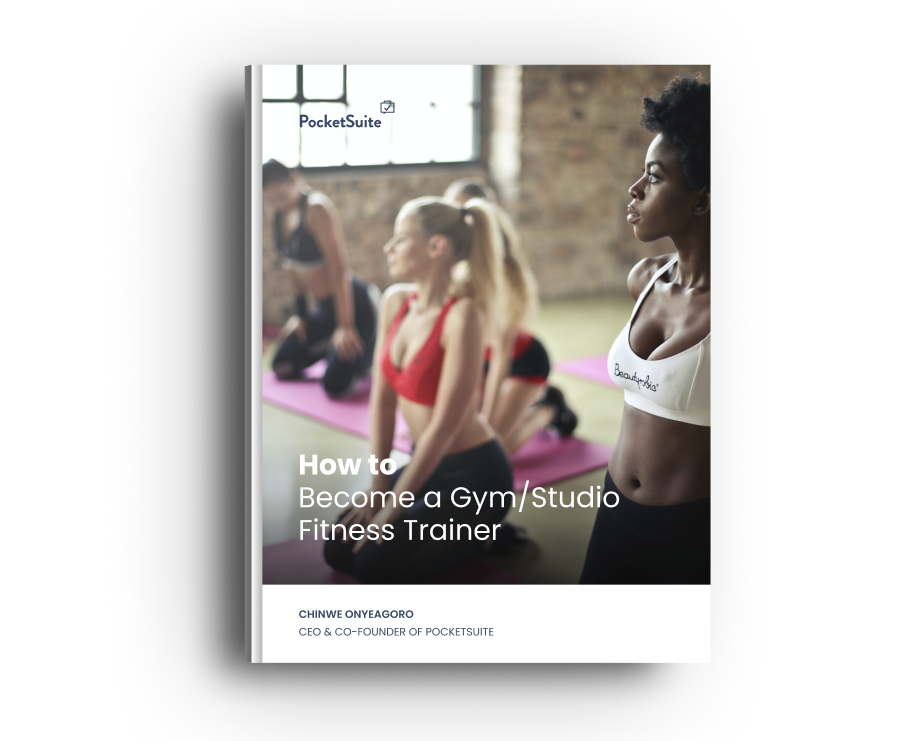
Sivan Fagan lends her knowledge in our latest eBook on How to Become a Fitness Trainer.
Download for free here